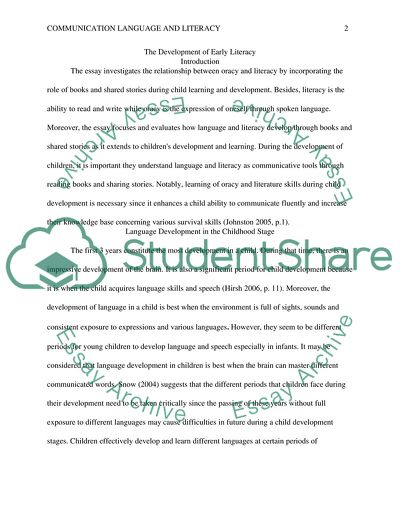Cite this document
(The Development of Early Literacy Essay Example | Topics and Well Written Essays - 2000 words, n.d.)
The Development of Early Literacy Essay Example | Topics and Well Written Essays - 2000 words. https://studentshare.org/education/1866591-communication-language-and-literacy
The Development of Early Literacy Essay Example | Topics and Well Written Essays - 2000 words. https://studentshare.org/education/1866591-communication-language-and-literacy
(The Development of Early Literacy Essay Example | Topics and Well Written Essays - 2000 Words)
The Development of Early Literacy Essay Example | Topics and Well Written Essays - 2000 Words. https://studentshare.org/education/1866591-communication-language-and-literacy.
The Development of Early Literacy Essay Example | Topics and Well Written Essays - 2000 Words. https://studentshare.org/education/1866591-communication-language-and-literacy.
“The Development of Early Literacy Essay Example | Topics and Well Written Essays - 2000 Words”. https://studentshare.org/education/1866591-communication-language-and-literacy.


